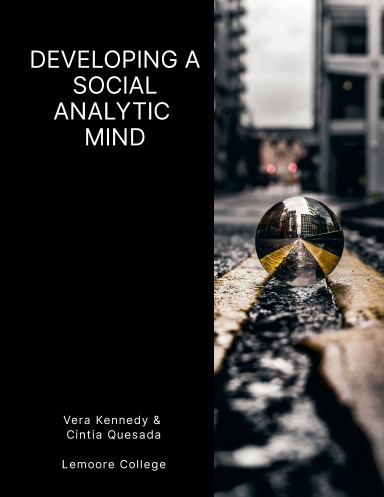[Sociology] Developing a Social Analytic Mind
Description of the Resource:
This textbook synthesizes six open educational resources to explore contemporary social issues through critical thinking and sociological perspectives. Covering topics such as the identification and definition of social problems, causes and consequences, social and economic inequalities, ecological disparities, and strategies for decision-making and activism, each module is enriched with updated data and figures. The compilation invites readers to engage actively with issues of race, gender, class, ecology, and policy analysis, aiming to foster transformative learning experiences in sociology.
How This Resource Integrates Diversity, Equity, and Inclusion Principles and Practices:
The textbook’s modules are designed to encourage critical engagement with topics related to race, gender, class, and environmental justice. Each module incorporates up-to-date data and figures, ensuring that discussions on social problems are grounded in current realities. For instance, Modules 3 and 4 address social and economic inequalities through the lenses of race, ethnicity, gender, and sexuality, as well as income, wealth, education, and employment. This approach ensures a thorough examination of how different forms of inequality intersect and impact diverse populations.
The content is structured to support active engagement with DEI issues. Module 1 focuses on developing a social analytic mind, equipping students with tools to identify and define social problems critically. Subsequent modules explore the causes and consequences of social issues, emphasizing the importance of understanding how inequalities are perpetuated and transformed. Module 5 addresses ecological disparities, highlighting the impact of environmental issues on various communities. Finally, Module 6 focuses on decision-making and problem-solving, including strategic and ethical reasoning, policy analysis, and social movements, thereby empowering students to engage in activism and advocate for social change.
Tips, Tricks, and Advice from the Faculty Author(s) Regarding OER Creation:
- Focus on student learning outcomes and concept-based learning
- Addresses what students need at the next academic level or employment
- Customize topic, materials, and content to your discipline and class
- Include student identities, narratives, perspectives, and experiences

